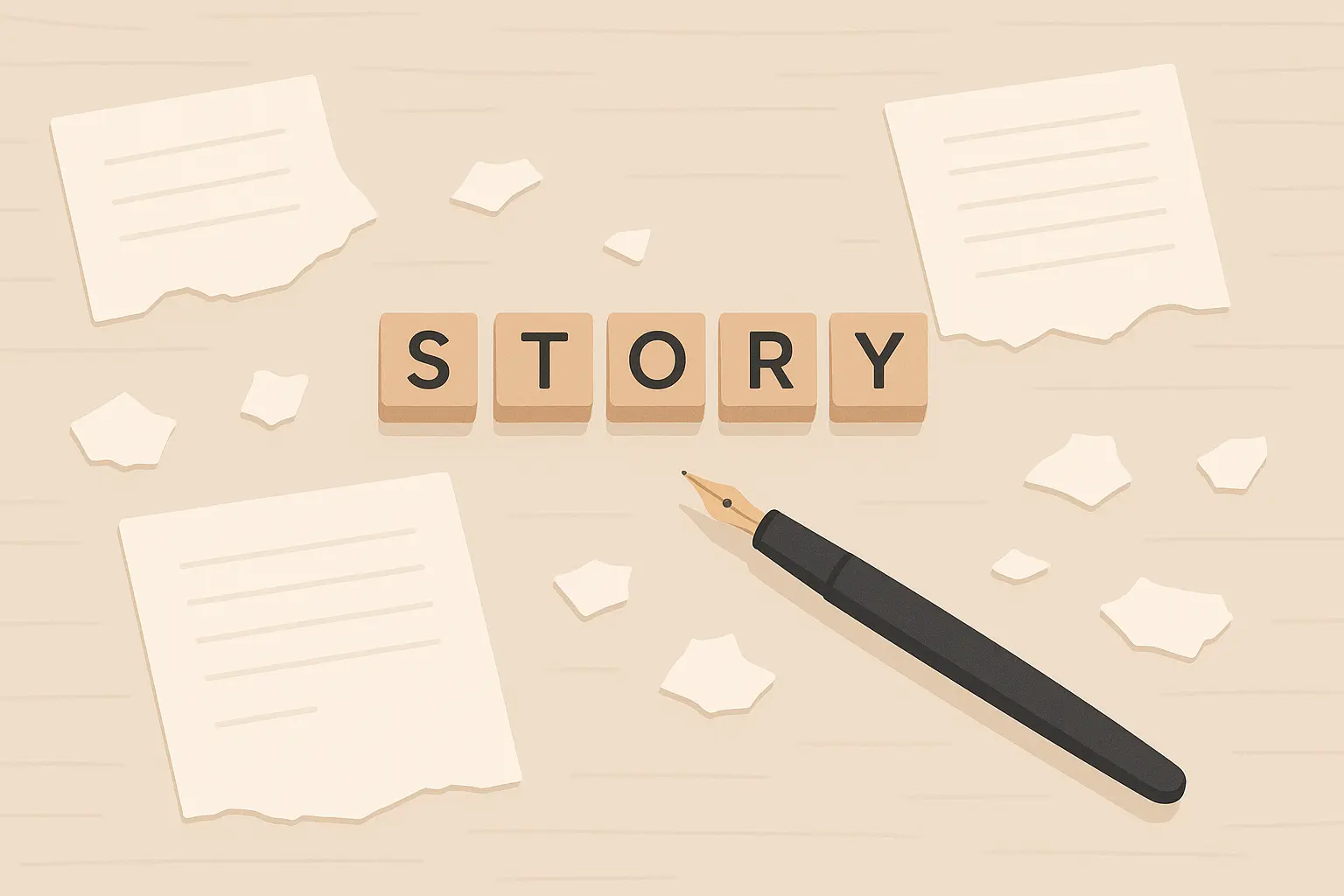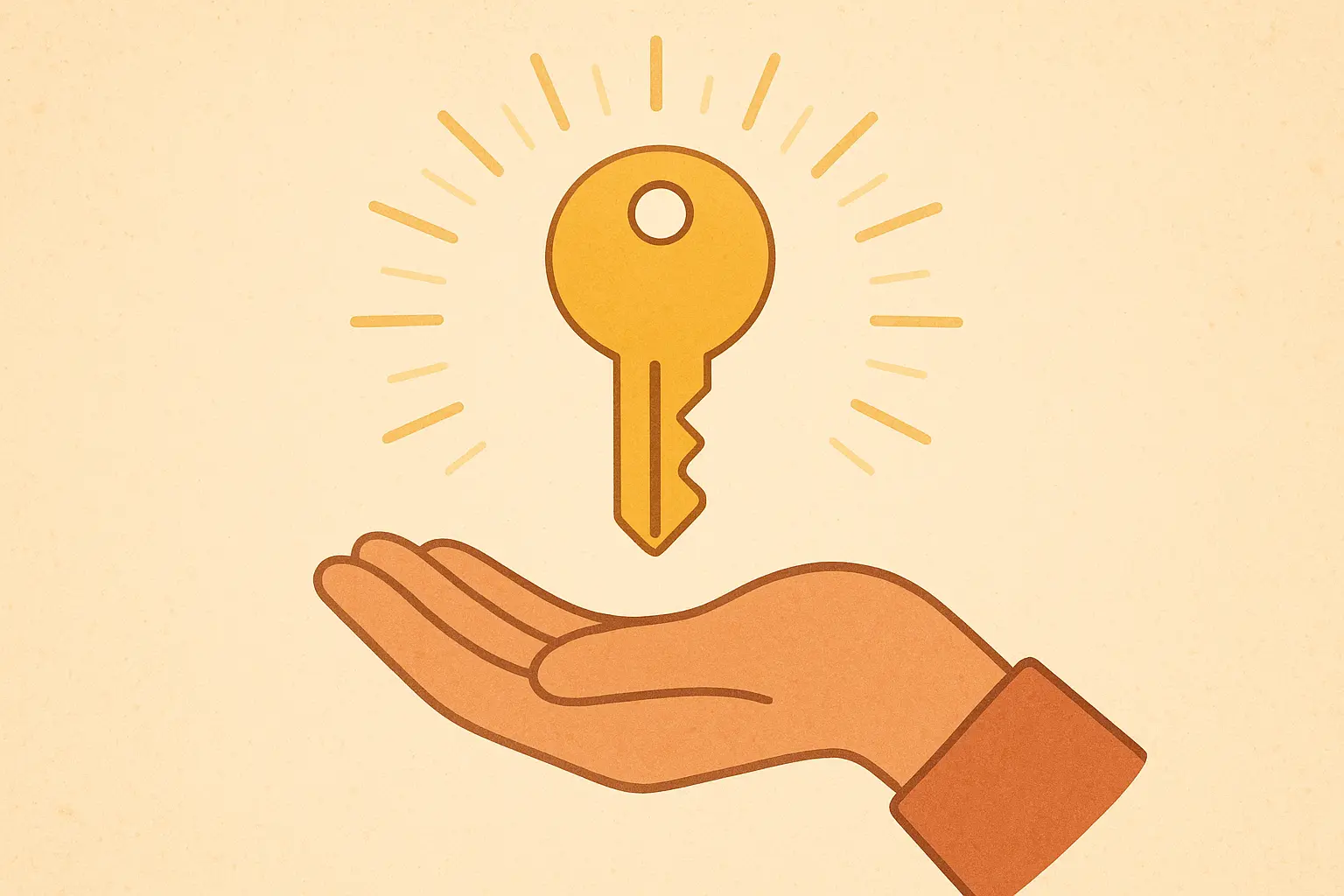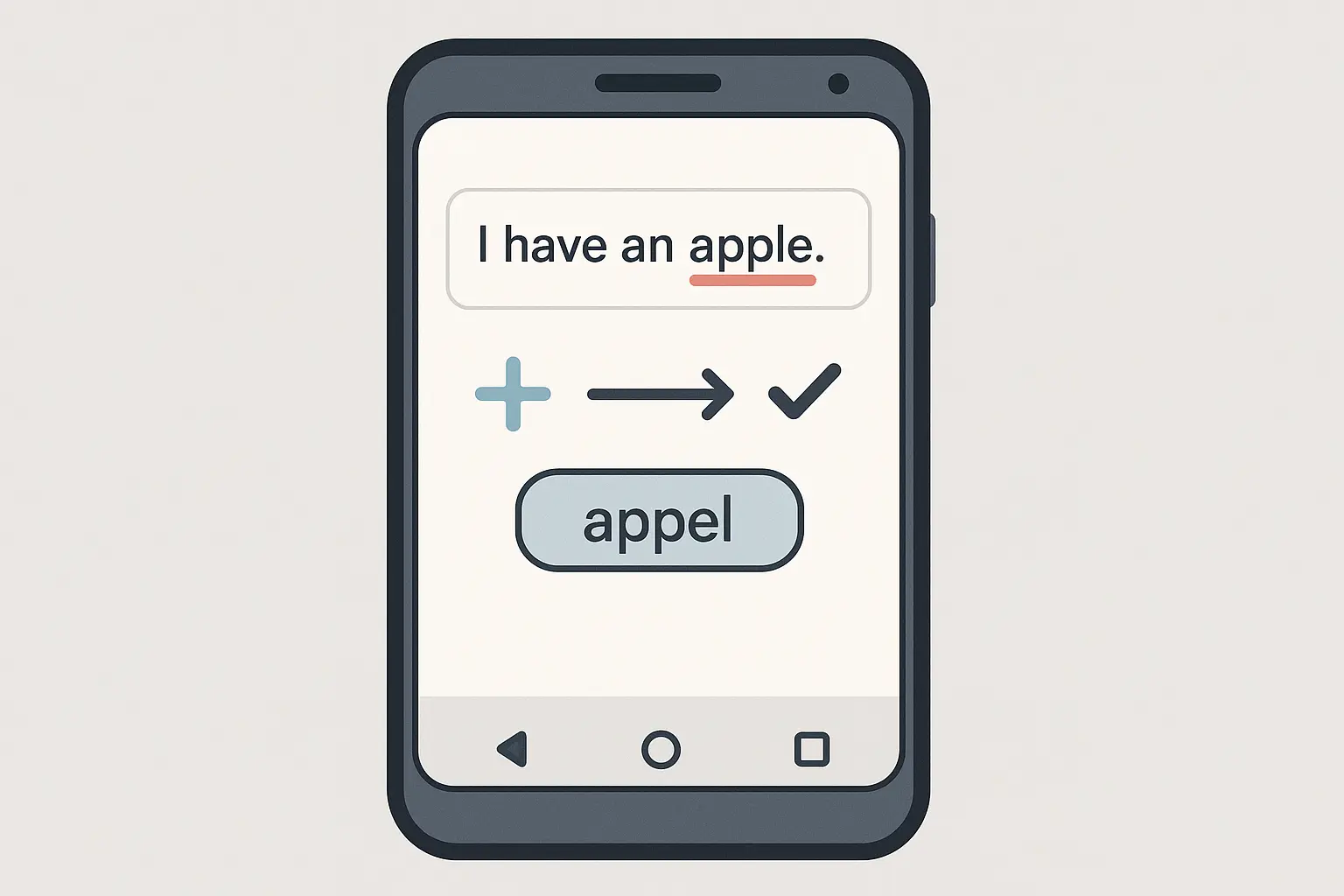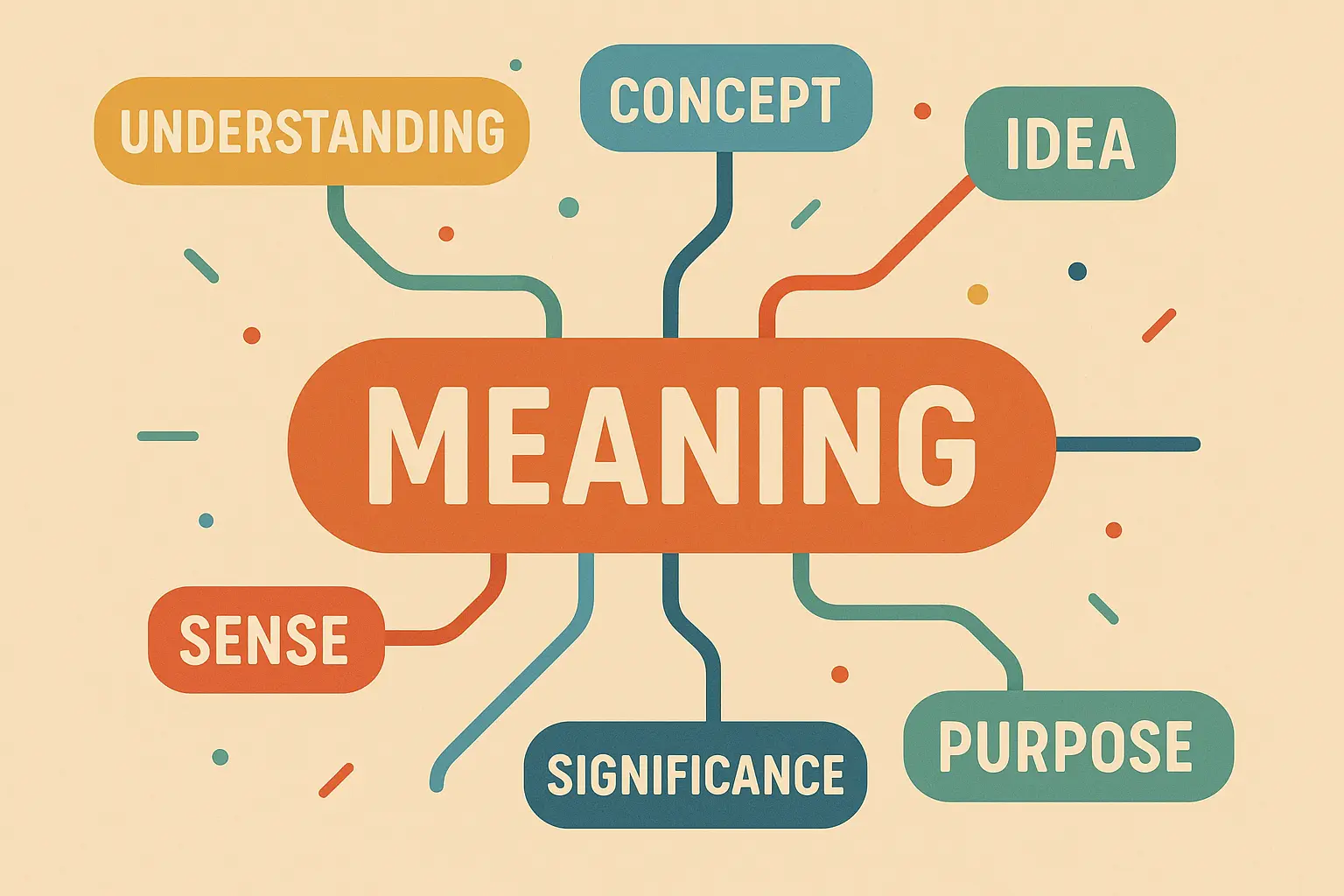You know those moments when you’re scrolling through something online and suddenly stop dead in your tracks? That happened to me when I first read Hemingway’s “For sale: baby shoes, never worn.”
Six words. That’s it. But I couldn’t shake it for days.
I was going through one of those awful writing slumps where I couldn’t finish anything longer than a grocery list, let alone a full story. Then I discovered these tiny powerhouses of storytelling, and everything clicked.
Narrative Magazine continues to seek six-word stories that “provide a movement of conflict, action, and resolution that gives the sense of a complete story transpiring in a moment’s reading.” When you only have six words to work with, every single one has to pack a punch. There’s no room for fluff.
I’ll be honest—writing a six-word story sounds easy until you actually try it. Understanding how to write a short short story becomes crucial when you’re working with this kind of extreme constraint. It’s like trying to fit your entire life story into a text message.

Table of Contents
-
What Makes These Stories Stick With You
-
25 Six-Word Stories That’ll Make You Feel Things
-
Life Transitions & Growing Up (Stories 1-5)
-
Love & Relationships (Stories 6-10)
-
Loss & Grief (Stories 11-15)
-
Technology & Modern Life (Stories 16-20)
-
Hope & Starting Over (Stories 21-25)
-
-
Why These Stories Actually Work
-
Real Talk: What Makes Them So Good
-
Want to Try Writing Your Own?
TL;DR
-
Good six-word stories hit you in the feelings while telling a complete story
-
The best ones tap into stuff we’ve all experienced but leave room for your own interpretation
-
Every single word has to earn its spot—no wasted space
-
They work because they suggest a beginning, middle, and end without spelling it out
-
The memorable ones stick with you because they have rhythm and emotional punch
-
Modern stories often include technology and contemporary themes we all recognize
-
Hope stories transform crappy experiences into something that builds you up
What Makes These Stories Stick With You
Here’s the thing about six-word stories that actually work—they balance hitting you in the feelings with telling a story that feels complete. The best ones tap into experiences we all share while leaving just enough mystery to keep you thinking about them later.
What I Look For:
-
Does it punch you in the gut? (35% of what makes it work) – Creates that immediate “oh damn” response
-
Does it feel like a complete story? (25%) – You can sense a beginning, middle, and end
-
Can everyone relate to it somehow? (20%) – Connects to shared human experiences
-
Is every word earning its spot? (15%) – Each word is doing the work of ten
-
Will you remember it tomorrow? (10%) – Sticks with you and makes you want to share it
Emotional Impact vs. Making Every Word Count
The real challenge is creating maximum feelings with minimum words. Each word has to advance the plot, show character, set the scene, and create mood all at the same time. You’re basically choosing emotional triggers that activate stuff readers already know and have experienced.
This applies to all kinds of compressed storytelling, like you’ll see in our collection of 25 short story examples where every single element has to pull double duty.
Does It Feel Like a Complete Story?
Despite being crazy short, the best six-word stories don’t feel like fragments. They feel whole. They suggest what happened before, during, and after through smart word choices and letting readers fill in the blanks.

Universal Stuff We All Get
The stories that really work tap into experiences we all share: love, loss, hope, fear, major life changes, those “aha” moments. They activate your emotional and cultural knowledge, making personal connections that go way beyond the specific words on the page.
Word Choice That Actually Matters
When you only have six words, word choice becomes everything. The most effective stories use words with rich meanings, cultural baggage, or multiple interpretations. Single words end up doing the work of entire paragraphs through careful selection and placement.
The Good Kind of Confusing
The best six-word stories use productive ambiguity—they can be interpreted multiple ways, and both readings work and mean something. This makes you want to come back and discover new layers, creating lasting engagement way beyond that first read.
The Ones You Can’t Stop Sharing
Great examples stick with you and get shared widely. They have a rhythmic quality and emotional punch that makes them quotable, often becoming part of cultural conversations about what it means to be human.
25 Six-Word Stories That’ll Make You Feel Things
This collection represents some of the finest examples of six-word stories across five major areas of human experience. Each one shows mastery of the form while exploring different aspects of life, from major transitions to how technology messes with our relationships.
Life Transitions & Growing Up
1. “Graduated, married, divorced, retired, forgotten, remembered.”
This story compresses an entire lifetime into six pivotal moments, using past tense to create this inevitable life progression rhythm. The final word “remembered” saves the whole thing from being depressing—it suggests legacy beyond death, transforming what could be a sad list into something ultimately hopeful.
Try this yourself: Create your own life progression story using different milestones. Maybe “Born, crawled, walked, ran, stumbled, soared” or “Dreamed, studied, worked, failed, learned, succeeded.” Notice how that final word can completely flip the emotional impact of the entire thing.
2. “Childhood ended when Dad stopped reading.”
This one gets me every time. There’s something so specific about bedtime stories that makes this universal. We all remember that last time our parents read to us, even if we didn’t know it was the last time. The word “stopped” is doing so much heavy lifting here—was Dad too busy? Did he pass away? Did you just get “too old” for stories? The mystery makes it hurt more.
3. “First apartment key. Finally, truly alone.”
The period after “key” creates this pause that mirrors the character’s moment of realization. “Finally” suggests this independence was something they’d been wanting forever, while “truly alone” carries both freedom and potential loneliness, capturing those complex emotions of young adulthood perfectly.

4. “Wedding dress, never worn. Dreams changed.”
The contrast between the specific object (wedding dress) and the abstract concept (dreams) creates this poignancy. “Never worn” implies loss, while “dreams changed” suggests adaptation rather than defeat, showing resilience when life doesn’t go according to plan.
5. “Retirement party. No one came. Freedom.”
This story completely flips your expectations by transforming apparent sadness into liberation. The short, stark sentences mirror the character’s emotional journey from disappointment to self-realization, suggesting that sometimes being alone is a choice rather than something that happens to you.
Love & Relationships
6. “Married sixty years. Still hold hands.”
Simple present tense “hold” makes the action immediate and ongoing. The word “still” carries enormous weight, suggesting endurance through decades of challenges while maintaining physical and emotional intimacy. It’s beautiful in its simplicity.
The power of showing rather than telling in relationships mirrors techniques you’ll find in 25 powerful anecdote examples where small moments reveal deeper truths about people and relationships.
7. “Text sent. Read receipt. No reply.”
Oof. We’ve all been there, right? That special kind of torture where you know they saw your message but chose to ignore it. The three dots that never came. This story captures that modern dating anxiety perfectly—when technology makes rejection feel even worse somehow.
8. “Love letters found after she died.”
The timing (“after she died”) creates devastating irony. “Found” suggests these were hidden or saved, implying either secret love or preserved romance. Were these letters from a secret lover? To a secret lover? The beauty of this story is that it could mean so many different things, and they’re all heartbreaking in their own way.

9. “First date. Last name already chosen.”
This one makes me laugh because it’s so relatable. We’ve all been there—meeting someone and immediately fast-forwarding to the wedding in our heads. The jump from “first date” to “last name” compresses that entire romantic fantasy into one moment of premature but totally endearing certainty.
10. “Divorce papers signed. Finally breathing again.”
“Finally” suggests they’d been holding their breath for a long time, implying the relationship was suffocating. “Breathing again” transforms a legal process into physical and emotional liberation, showing divorce as relief rather than failure.
Loss & Grief
11. “For sale: baby shoes, never worn.”
Hemingway’s classic example is still the gold standard for six-word stories. “Never worn” implies tragedy without stating it directly. The classified ad format adds this emotional distance that paradoxically increases the impact through understatement. It’s devastating precisely because it doesn’t try to be.
12. “Missed call from Mom. She’s gone.”
Technology creates this cruel irony—the device meant to connect us highlights our disconnection. “She’s gone” works on multiple levels, suggesting both death and the missed opportunity for that final conversation. It’s the modern version of “if only I had answered.”
13. “Empty chair at Thanksgiving. Missing you.”
Visual imagery makes absence tangible and specific. “Missing you” directly addresses the deceased, creating intimacy within grief, while the holiday setting emphasizes family loss. You can picture that empty chair, can’t you?

14. “Hospital bracelet removed. Journey over now.”
Medical imagery suggests a long illness without getting into specifics. “Journey” elevates the experience beyond just medical stuff, while “over now” provides peaceful finality and release from suffering. It’s sad but also somehow peaceful.
15. “Last words spoken: ‘See you tomorrow.'”
Quotation marks make the words immediate and personal. The tragic irony of casual goodbye words gaining enormous weight through context shows how ordinary moments become precious in retrospect. We never know which “see you later” will be the last one.
Technology & Modern Life
16. “WiFi password changed. Relationship officially over.”
This is painfully accurate for anyone who’s lived with a partner in the 21st century. Forget returning keys—changing the WiFi password is the modern breakup power move. It’s petty, it’s effective, and it says “I don’t want you here” in the most passive-aggressive way possible. We’re all laughing because we’ve either done this or had it done to us.
Here’s a thought: Consider how digital milestones mark our relationships today. “Facebook status: Single. Heart finally free,” or “Blocked his number. Peace restored instantly.” These contemporary markers carry the same emotional weight as traditional relationship symbols but reflect our connected age.
17. “Phone died. Talked to actual people.”
The fact that we call them “actual people” says everything about how weird our relationship with technology has become. When did face-to-face conversation become noteworthy? When did we start treating dead phones like personal emergencies? This story is funny because it’s uncomfortably true.
18. “Autocorrect changed ‘love’ to ‘live.’ Accurate.”
Technology accidentally provides life wisdom in this clever example. The single word “Accurate” delivers the emotional punch—sometimes we do confuse love with merely existing, and autocorrect reveals this truth. Sometimes our phones know us better than we know ourselves.

19. “LinkedIn connection request from deceased father.”
This one gave me chills. It’s like a modern ghost story, isn’t it? Our digital selves outlive our physical ones, and sometimes the internet doesn’t get the memo that someone’s gone. It’s creepy and sad and makes you wonder what happens to all our online stuff when we’re not around to manage it anymore.
20. “Social media memories: life looked better.”
This story captures the gap between our curated online presence and actual experience. “Looked better” suggests both visual appearance and emotional state, highlighting social media’s role in creating false narratives about our lives. We all know our highlight reels aren’t the whole story.
Hope & Starting Over
21. “Rock bottom became my solid foundation.”
I love this because it doesn’t sugarcoat anything. Rock bottom sucked. But instead of staying there feeling sorry for yourself, you built something on it. It’s not toxic positivity—it’s acknowledging that sometimes you have to fall completely apart before you can put yourself back together properly.
22. “Darkness lifted. Sun felt warm again.”
Sensory language makes abstract concepts physical and immediate. “Again” suggests previous happiness, implying this represents recovery rather than first-time joy, offering hope to those currently in dark periods. The sun didn’t just shine—it felt warm, which is so much more personal.

23. “Second chance taken. This time, different.”
The key word here is “taken.” Not given, not offered—taken. Someone actively chose to grab that second chance and do something with it. “Different” is perfect because it doesn’t promise everything will be perfect, just that this time won’t be a repeat of last time.
24. “Forgiveness granted. Heavy burden finally lifted.”
Physical imagery (“heavy burden”) makes emotional concepts tangible. “Finally” suggests long-awaited resolution, while “granted” implies grace and the gift of forgiveness from others or yourself. You can almost feel the weight coming off someone’s shoulders.
25. “New city, new name, new beginning.”
Repetition of “new” creates this rhythmic hope and momentum. The progression from external (city) to personal (name) to abstract (beginning) shows complete transformation and the possibility of total reinvention. Sometimes you really can start over completely.
Why These Stories Actually Work
Let me break down how each story achieves its emotional impact through specific techniques. We’ll look at word choice, structure, ambiguity, and cultural resonance to understand what makes these examples so effective and memorable.
What Each Category Does Best:
-
Life Transitions: Uses chronological progression to trigger nostalgia and growth feelings
-
Love & Relationships: Uses contrast and juxtaposition to highlight intimacy and loss
-
Loss & Grief: Uses implication and understatement to create sorrow and acceptance
-
Technology & Modern Life: Uses irony and contemporary references for humor and anxiety
-
Hope & Starting Over: Uses transformation and metaphor for inspiration and relief
Life Transitions & Growing Up – What Works
The graduation story uses past tense to create this sense of life’s inevitable progression. Each word represents a major life milestone, but the rhythm suggests these events happen to us rather than being actively chosen. “Forgotten” seems like the natural end, making “remembered” a gift that transforms the entire thing from depressing to hopeful.
“Childhood ended when Dad stopped reading” works because it picks one specific moment to represent a larger loss. The ambiguity of “stopped” lets readers fill in their own experiences—death, divorce, abandonment, or just getting too busy. This universality makes the story resonate across different backgrounds.
The apartment key story captures that exact moment when independence becomes real rather than theoretical. The period after “key” forces a pause, mimicking the character’s realization. “Finally” suggests this was desired, but “truly alone” acknowledges the complexity of getting what we want.
Love & Relationships – What Works
“Married sixty years. Still hold hands” achieves power through the single word “still.” It implies decades of challenges overcome, arguments resolved, and love maintained through physical connection. The present tense makes it immediate—they’re holding hands right now.
The text message story perfectly captures modern anxiety. “Read receipt” is technical language that contrasts sharply with the emotional stakes. We’ve all experienced this particular form of digital-age heartbreak, making the story instantly relatable.
“Love letters found after she died” creates devastating irony through timing. Were these letters hidden during life? From a secret lover? To a secret lover? The ambiguity allows multiple interpretations, all heartbreaking in different ways.

Loss & Grief – What Works
Hemingway’s baby shoes story remains the gold standard because it implies tragedy without stating it. The classified ad format creates emotional distance that makes the implied loss more powerful. “Never worn” carries infinite sadness in two simple words.
“Missed call from Mom. She’s gone” uses technology to amplify grief. The missed call represents missed opportunity, that final conversation that will never happen. “She’s gone” works whether it means death or simply being unreachable.
The empty chair story makes absence visible and specific. Thanksgiving emphasizes family gathering, making the missing person’s absence more acute. “Missing you” directly addresses the deceased, creating intimacy within public grief.
Technology & Modern Life – What Works
“WiFi password changed. Relationship officially over” brilliantly captures how digital and romantic relationships intertwine. Changing the password becomes the modern equivalent of returning house keys—a technical act with deep emotional significance.
The phone death story uses personification (“died”) to highlight our relationship with devices. “Actual people” reveals how face-to-face interaction has become noteworthy rather than normal, commenting on social isolation despite constant connectivity.
“Autocorrect changed ‘love’ to ‘live.’ Accurate” uses technology’s mistake to reveal emotional truth. Sometimes we do confuse love with merely existing, and the phone’s error becomes philosophical insight delivered in one word: “Accurate.”
Hope & Starting Over – What Works
“Rock bottom became my solid foundation” transforms negative experience into positive outcome. “Became” suggests process and time, while “solid foundation” promises stability. The story reframes failure as necessary groundwork for future success.
“Darkness lifted. Sun felt warm again” uses sensory language to make abstract concepts physical. “Again” is crucial—it suggests return to previous happiness rather than first-time joy, offering hope that dark periods end.
“Second chance taken. This time, different” emphasizes active choice through “taken.” “Different” promises change without specifics, maintaining hope while acknowledging past failures. The story suggests growth and learning from mistakes.
Real Talk: What Makes Them So Good
Looking at how each story performs against what actually makes them work reveals patterns in successful six-word stories. The highest-impact examples combine emotional punch with complete storytelling while staying relatable and leaving room for interpretation.
The Ones That Hit Hardest
The highest-impact stories create immediate emotional response through implication rather than statement. “For sale: baby shoes, never worn” tops this category because it suggests tragedy without naming it, allowing readers to fill in devastating details. “Missed call from Mom. She’s gone” combines regret with technology for modern relevance, while “Rock bottom became my solid foundation” transforms pain into hope.
Stories that are clever and relatable but more cerebral than emotional make us think and smile rather than feel deeply. “WiFi password changed. Relationship officially over” falls into this category—it’s smart observation rather than gut punch.

The Complete Story Feel
The most complete stories suggest entire life arcs or relationship journeys. “Graduated, married, divorced, retired, forgotten, remembered” covers a full lifetime, while “Love letters found after she died” implies a complete love story and its aftermath. “Second chance taken. This time, different” shows clear before-and-after transformation.
Less complete but still effective stories focus on single moments rich with implication. “First apartment key. Finally, truly alone” captures one pivotal moment, while “Autocorrect changed ‘love’ to ‘live.’ Accurate” presents a moment of realization rather than full narrative arc.
Stories Everyone Gets
Stories with highest universal appeal deal with experiences we all share or fear: death, loss, love, major life transitions. The baby shoes story, missed call from mom, and empty chair at Thanksgiving resonate across cultures because they tap into fundamental human experiences.
Technology-specific stories have more niche appeal but remain relevant to modern audiences. WiFi passwords and LinkedIn requests speak to contemporary life while maintaining emotional truth that transcends the specific technology referenced.
The Good Kind of Mystery
The most effective stories use ambiguity productively. “She’s gone” could mean death, departure, or disappearance—all equally valid and meaningful. “Dreams changed” could represent positive adaptation or devastating loss, depending on reader interpretation.
“This time, different” maintains hope by not specifying how things will be different, allowing readers to project their own possibilities. This ambiguity invites return visits and deeper contemplation.
Want to Try Writing Your Own?
Here’s the thing about six-word stories—they look deceptively simple. But trust me, you’ll go through about fifty drafts before you find the six words that actually work. Focus on emotional triggers, universal experiences, and words that do multiple jobs while leaving room for reader interpretation.
Understanding broader story theme examples helps identify which universal themes work best in compressed formats.
The Real Process:
-
Concept Stage: What emotion am I targeting? (Focus on universal experiences, avoid being too specific)
-
Word Choice: Does each word work overtime? (Choose words with rich connotations, avoid wasting space)
-
Structure: Does it feel complete? (Suggest beginning, middle, end rather than creating fragments)
-
Revision: Is it memorable and shareable? (Test for emotional punch, don’t over-explain)
-
Polish: Does every word earn its place? (Read aloud for rhythm, don’t settle for “good enough”)
Start with a Feeling, Not a Plot
Don’t think “what happened?” Think “how did it feel?” Were you heartbroken? Relieved? Terrified? Start there and work backward. Consider what universal experiences connect to your chosen emotion. Everyone has experienced loss, love, disappointment, or hope in some form. Tap into these shared human experiences rather than highly specific situations that only some readers will relate to.
Try this: Start with a feeling word like “betrayal” and work backward. What six-word story could make readers feel betrayed? “Best friend dating my ex-husband” captures betrayal through relationship violation. “Promised forever. Left without goodbye note” uses abandonment. “Secret shared. Found it on Facebook” uses modern betrayal through social media exposure.
Every Word Needs to Earn Its Spot
This isn’t the place for “the” or “and” unless they’re absolutely crucial. Each word should do the work of ten. Look for words with rich connotations and cultural associations. “Graduation” implies achievement and transition. “Hospital bracelet” suggests illness and medical journey. “WiFi password” immediately places us in contemporary domestic life.
“Still” in “Still hold hands” carries decades of meaning—persistence, endurance, ongoing love despite challenges. “Never” in “never worn” suggests finality and lost potential.

Leave Room for Interpretation (But Don’t Be Vague)
Leave room for reader interpretation without being confusing. “She’s gone” works because it could mean several specific things, all emotionally resonant. “Dreams changed” invites readers to decide whether this represents growth or loss.
Avoid ambiguity that confuses rather than enriches. The uncertainty should deepen meaning, not obscure it. Readers should feel they understand the story while recognizing multiple valid interpretations.
Make Sure It Feels Complete
Your six words should suggest beginning, middle, and end even if they don’t explicitly state all three. “Rock bottom became my solid foundation” implies a journey from lowest point through transformation to stability.
Read your story out loud. Does it feel complete or like a fragment? Can readers sense the full narrative arc even with minimal information? If it feels incomplete, consider which words might carry more narrative weight.
Work Within the Constraint Creatively
The six-word limit forces creative solutions. Use punctuation strategically—periods, commas, and colons can create rhythm and emphasis. “First apartment key. Finally, truly alone” uses the period to create a pause that mirrors realization.
Consider different structures: chronological progression, before-and-after comparison, cause-and-effect relationship, or single moment of revelation. Each structure offers different storytelling possibilities within the constraint.
Polish Until It Shines
Every word choice matters exponentially. “Finally” suggests long-awaited achievement. “Again” implies return to previous state. “Still” indicates persistence despite challenges. Choose words that resonate beyond their literal meaning.
Read successful examples repeatedly to internalize their rhythm and impact. Notice how the best stories stick with you and get shared. That memorability and shareability should be your goal.
When you’re struggling to find the perfect words or structure for your six-word story, exploring first-person story examples can provide insights into creating intimate, immediate narrative voice even in compressed formats.
The Real Writing Process
Start messy, then cut ruthlessly
Your first attempt will probably be terrible. Mine was “Woke up late, coffee cold, Monday sucks” which is basically just complaining in six words. Don’t worry about being profound right away—just get something down.
Read them out loud to yourself
Seriously, do this. Six-word stories have a rhythm, almost like poetry. If it sounds clunky when you say it, it probably needs work. The best ones flow off your tongue.
Test them on people
Share your story with a friend and watch their face. Do they get it immediately? Do they ask questions? Do they want to share it with someone else? That’s your quality test right there.
Don’t try to explain everything
The magic happens in what you don’t say. Let readers fill in the blanks with their own experiences. If you have to explain your six-word story, it’s probably not working yet.
Why These Stories Matter
Look, we’re all drowning in content these days. Long articles, endless social media feeds, novels that could double as doorstops. Sometimes you just want something that hits hard and fast, then lets you get on with your day.
These six-word stories do exactly that. They’re like emotional espresso shots—concentrated, powerful, and over before you know it. But the good ones stick with you. You’ll be thinking about baby shoes or empty chairs or changed WiFi passwords hours later.
And here’s the thing—if you can write a good six-word story, you can write anything. It teaches you that every single word matters, that readers are smart enough to fill in gaps, and that sometimes less really is more.
The best examples transcend their brevity to become complete emotional experiences. They prove that readers don
The best examples transcend their brevity to become complete emotional experiences. They prove that readers don’t need lengthy descriptions or complex plots to feel deeply connected to a story. Sometimes six carefully chosen words can accomplish what pages of prose cannot.
As you explore this form—whether as reader or writer—remember that the constraint of exactly six words isn’t a limitation but a creative catalyst. It forces innovation, precision, and emotional honesty that can transform how you approach all storytelling.
So whether you’re here just to read these gems or you’re brave enough to try writing your own, remember: the best stories—no matter how long or short—are the ones that make us feel less alone in this weird, wonderful, heartbreaking world we’re all stumbling through together.



Add comment